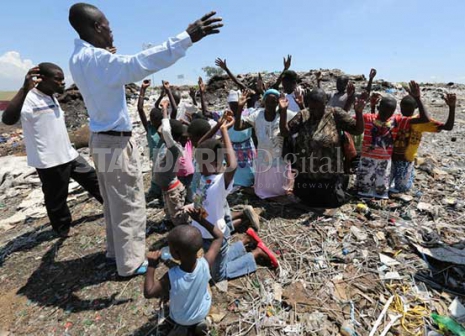×
The Standard e-Paper
Home To Bold Columnists

It is Sunday morning and a group of street families are gathered atop garbage heaps at the infamous Kachok dumpsite.
The dumpsite receives about 400 tonnes of waste collected in Kisumu and its environs daily.